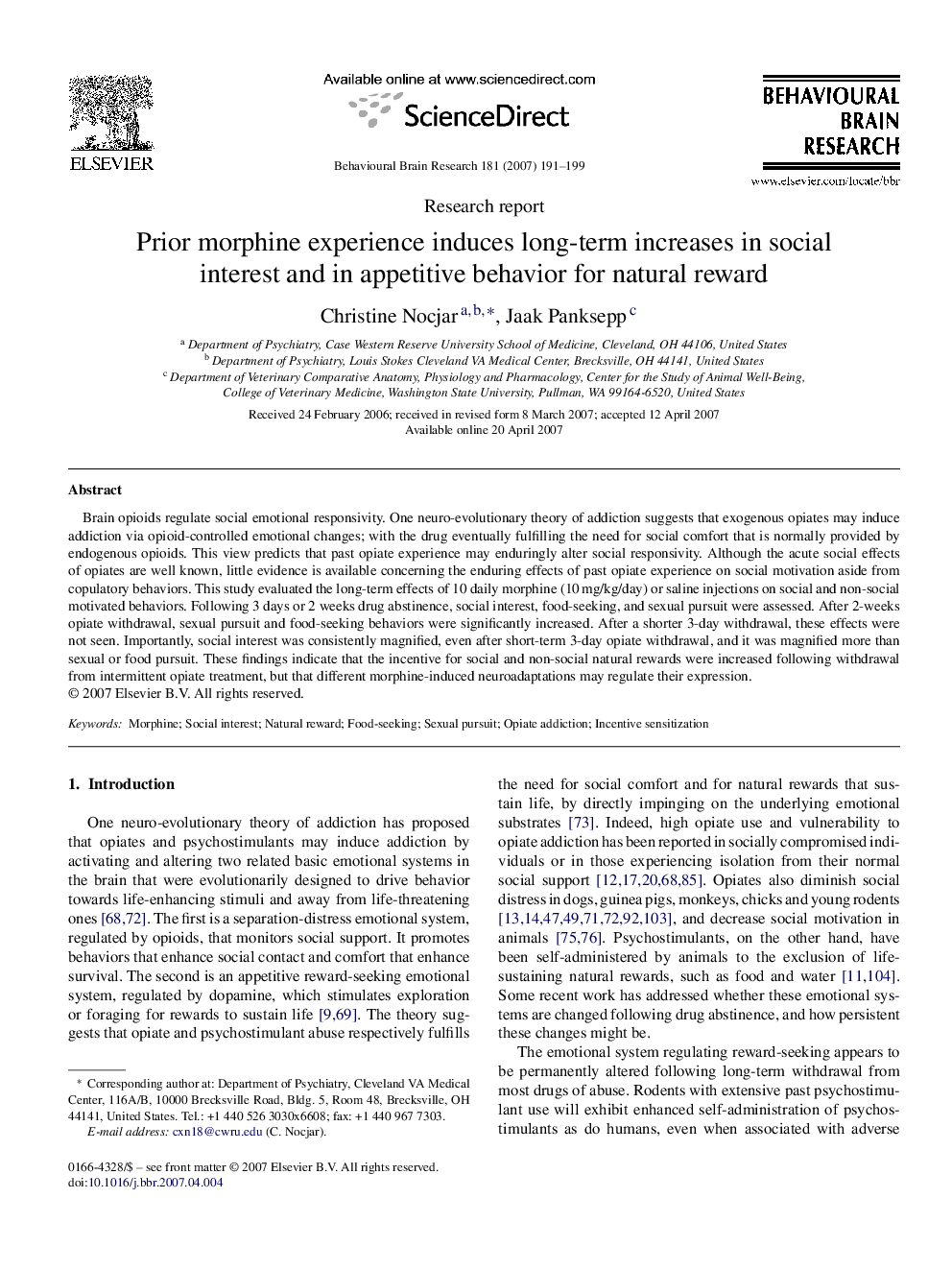| کد مقاله | کد نشریه | سال انتشار | مقاله انگلیسی | نسخه تمام متن |
|---|---|---|---|---|
| 4315603 | 1290087 | 2007 | 9 صفحه PDF | دانلود رایگان |

Brain opioids regulate social emotional responsivity. One neuro-evolutionary theory of addiction suggests that exogenous opiates may induce addiction via opioid-controlled emotional changes; with the drug eventually fulfilling the need for social comfort that is normally provided by endogenous opioids. This view predicts that past opiate experience may enduringly alter social responsivity. Although the acute social effects of opiates are well known, little evidence is available concerning the enduring effects of past opiate experience on social motivation aside from copulatory behaviors. This study evaluated the long-term effects of 10 daily morphine (10 mg/kg/day) or saline injections on social and non-social motivated behaviors. Following 3 days or 2 weeks drug abstinence, social interest, food-seeking, and sexual pursuit were assessed. After 2-weeks opiate withdrawal, sexual pursuit and food-seeking behaviors were significantly increased. After a shorter 3-day withdrawal, these effects were not seen. Importantly, social interest was consistently magnified, even after short-term 3-day opiate withdrawal, and it was magnified more than sexual or food pursuit. These findings indicate that the incentive for social and non-social natural rewards were increased following withdrawal from intermittent opiate treatment, but that different morphine-induced neuroadaptations may regulate their expression.
Journal: Behavioural Brain Research - Volume 181, Issue 2, 6 August 2007, Pages 191–199